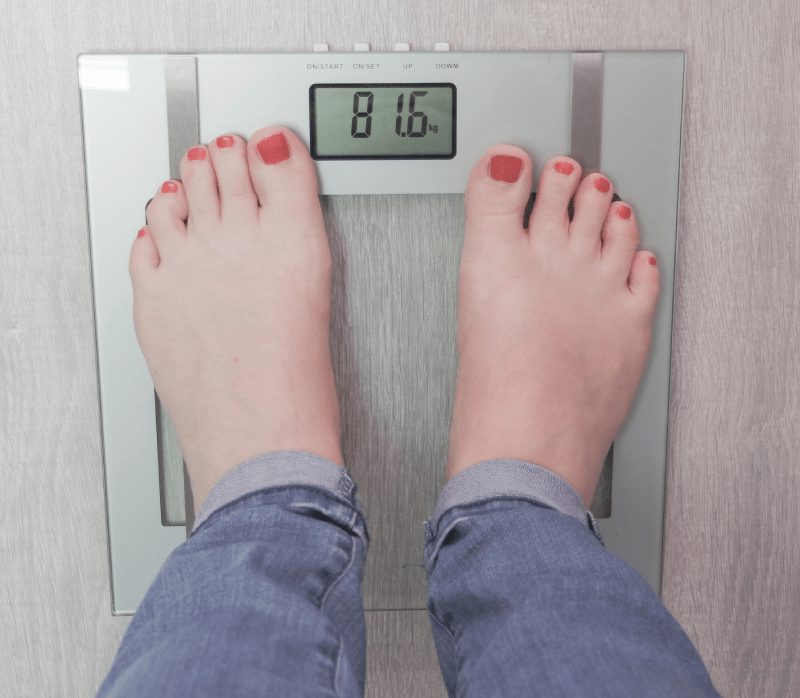Why Does Failure to Lose Weight Happen? The Most Important Reasons Why You Cannot Lose Weight
Why Can’t I Lose Weight? What Should We Do If We Cannot Lose Weight?
There can be many reasons why it is difficult to lose weight. The most common reason is often simply the lack of a good nutrition and exercise plan. Many people who struggle to lose weight have either been on a yo-yo diet, or they are eating too much unhealthy food and not doing enough exercise. It is also important to remember that our bodies may be responding differently to the foods we eat, and some people may require more calories than others. Other potential causes may include medical conditions such as depression, hormonal imbalances, or medications.
If you feel you have done all you can to try to lose weight, the best thing to do is to consult with a qualified medical practitioner. They can help you identify potential causes and provide advice on customized nutrition and exercise plans that are tailored to your individual needs. They may also be able to conduct tests to find out if any medical conditions could be interfering with your weight loss efforts. With the help of your medical practitioner, you will be able to develop an effective plan to help you reach your weight loss goals.

Why Does The Body Stop Losing Weight?
When dieting and exercising, your body will lose weight in the beginning, but at some point the rate of weight loss will slow down or even stop. This is due to a number of factors, including the body’s metabolic adaptation to the calorie deficit created by the diet, the body consuming its own muscle mass for energy, and the body’s natural reaction to stress.
When the body reaches a certain point of weight loss, it will begin to adjust to the calorie deficit by slowing down the metabolism. In order to keep losing weight, you must continually be in a calorie deficit by either reducing how much you eat or increasing the amount of exercise you do. Furthermore, many people who are trying to lose weight end up losing more muscle mass than fat, which can make reaching your goals difficult. Lastly, the body’s natural “emergency response” to the stress of dieting, combined with lack of caloric intake, can lead to nutrient deficiencies and a slower metabolism.
Fortunately, there are ways to overcome these obstacles and continue losing weight. Make sure to eat a balanced diet and get enough nutrients, as this can help prevent your metabolism from slowing down too much. Additionally, focus on weight training, as this can help preserve muscle mass and boost the metabolism. Lastly, resist the urge to go on very low-calorie diets, as this could lead to unwanted health effects and make it even harder to lose weight.
What Are The Reasons For Failure To Lose Weight?
There are many factors that can contribute to failure to lose weight. Some of the most common include an insufficient calorie deficit, nutrient deficiencies, a lack of physical activity, inconsistent dieting, too much stress, and hormonal imbalances.
The first reason for failure to lose weight is often an insufficient calorie deficit. In order to burn fat, you must create a calorie deficit. This means you need to eat fewer calories than what you normally would. In order to do this, you should keep track of your calorie consumption and make sure you are expending more energy than you are consuming.
Another reason for failure to lose weight is nutrient deficiencies. Many people who don’t make steady progress with dieting usually fail to get the necessary nutrients from the food they eat. This can lead to nutrient deficiencies, which in turn can lead to fatigue, cravings, and a slowed metabolism.
Furthermore, a lack of physical activity can also interfere with weight loss. It is essential that you engage in some form of physical activity to help boost the metabolism and burn calories.
Finally, failing to stick with a diet or having too much stress can also cause failure to lose weight. It is important to commit to a consistent diet to see results and try to find ways to manage stress.

10 Top Reasons Why You Cannot Lose Weight
There are many reasons why one might not be able to lose weight, including medical conditions, hormonal imbalances, nutrient deficiencies, an insufficient calorie deficit, a slow metabolism, inconsistent dieting, unhealthy diet choices, a lack of physical activity, and too much stress.
- Medical Conditions: Certain medical conditions can cause difficulty in losing weight. These include conditions such as hypothyroidism, PCOS, depression, and chronic stress.
- Hormonal Imbalances: Hormonal imbalances, such as low testosterone or high cortisol levels, can result in weight gain.
- Nutrient Deficiencies: Nutrient deficiencies can be caused by eating a diet low in essential vitamins and minerals. This can lead to weight gain.
- Insufficient Calorie Deficit: Eating too much and/or not working out enough can prevent the body from entering a calorie deficit and make it hard to lose weight.
- Slow Metabolism: If a person’s metabolism is slower than normal, it can be difficult to lose weight.
- Inconsistent Dieting: Going off of a diet for too long can make it hard to enter a calorie deficit and cause the body to hold onto extra fat.
- Unhealthy Diet Choices: Eating mostly processed foods and not enough vegetables, fruits, and healthy sources of protein can lead to weight gain.
- Lack of Physical Activity: Exercise is an important component in any weight loss plan and can help keep the metabolism going.
- Too Much Stress: Stress can contribute to weight gain by causing an increase in cortisol levels and an imbalance of hormones.
- Genetic Predisposition: Some individuals may have a natural predisposition for greater or lower body fat levels that is hard to escape no matter what one does.
By understanding why one is having difficulty losing weight, it is easier to diagnose the problem and create a plan to overcome it. If you are having trouble losing weight, you can contact us and learn how to lose weight.
